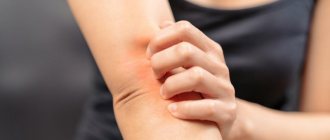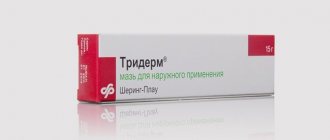Can thrush cause frequent urination?
The main symptoms of candidiasis are a cheesy white discharge, burning, itching, sour odor, and discomfort during sexual intercourse. Pain when urinating, frequent urge. But the last symptom appears a little later.
Why is this happening?
The causative agents of thrush are opportunistic microorganisms that are constantly present in the body - fungi of the genus Candida. With a decrease in immunity and exposure to unfavorable factors, the growth of fungi increases. The microflora of the vagina is disrupted, irritation, swelling, burning, and itching appear. Against this background, inflammation develops.
The close proximity of the genital organs and bladder makes it possible to exchange microflora. Gradually, microorganisms enter the bladder and provoke its inflammation. Hence the pain, discomfort, and problems with emptying the bladder. Cystitis, urethritis, and thrush of the urinary tract are complications of vaginal candidiasis.
The connection between cystitis and candidiasis
Diseases are interconnected. The cause of development is pathogenic microorganisms of various kinds. Bladder diseases can be caused by vaginal candidiasis, sexually transmitted diseases, and inflammation of the genital organs.
Signs of cystitis against the background of thrush:
- cloudy color of discharge;
- accumulation of urine at an accelerated rate, in large portions;
- false urges;
- pain in the suprapubic region;
- painful sensations at the end of urination;
- itching
By the way, not only candidiasis can cause the development of cystitis, but also vice versa. Due to pathologies in the bladder, the vaginal microflora is disrupted and thrush begins. Only in this case all the symptoms are reversed. First, there is pain when urinating, frequent urges, and only then a cheesy discharge from the vagina, a sour smell.
Candidal urethritis
Infection of the urethra often occurs through contact with carriers of the infection - unprotected sexual intercourse. Contributing factors are weak immunity, antibiotics, diabetes, chronic diseases, sexually transmitted diseases. Symptoms in men and women are somewhat different.
Thrush is one of the provoking factors in the development of urethritis. But painful symptoms appear 1-2 weeks after the first manifestations of candidiasis. In men, thrush also occurs, but in most cases it is asymptomatic, but urethritis is much more pronounced.
Symptoms of the disease in a woman:
- mucous discharge from the urethra with a sour odor;
- itching of the genitals, burning;
- discomfort during sexual intercourse;
- aching pain in the lower abdomen;
- menstrual irregularities with delay, painful periods, bleeding;
- pain at the end of emptying the bladder;
- increased signs of thrush.
As the disease progresses, the pain either increases or decreases.
But you shouldn’t rejoice at the temporary relief. This suggests that urethritis has become chronic, and it will be much more difficult to get rid of it. Lack of therapy will lead to damage to other organs located in the immediate vicinity. Symptoms in men:
- the presence of mucus from the urethra, especially in the morning;
- unpleasant sour smell;
- the head of the penis swells, the skin turns red;
- urine with a green, yellow, reddish tint;
- pain during, at the end of urination;
- aching pain in the lower abdomen;
- a white-gray coating on the head of the genital organ;
- discomfort during sex;
- frequent urination, false urges;
- itching
Urethritis has similar symptoms to other diseases of the genitourinary system. To make a correct diagnosis, it is necessary to undergo an examination. Self-treatment of infectious and inflammatory pathologies is not allowed.
Why is this happening?
Close connection between cystitis and candidiasis
A common cause of cystitis in women is vaginal infections, which primarily include thrush. As a result, there is a close connection between cystitis and candidiasis. As a rule, simultaneous infection with cystitis and thrush is provoked jointly by a fungal and bacterial infection. Infection occurs after sexual contact, when the candida fungus penetrates the bladder or after long-term use of antibacterial drugs. Manifestations of cystitis with candidiasis look like a normal inflammatory process. Patients report the following symptoms:
- painful urination;
- feeling of pain above the pubis;
- increased urination;
- burning and itching sensation in the genitals;
- bloody discharge in urine (cloudy urine).
Return to contents
Candidal urethritis in women and men
Urethritis is a disease that often occurs in women and men. This disease is characterized by an inflammatory process in the urethra. Urethritis develops against the background of bacterial, viral or fungal infection. Candidal urethritis is a disease during which the urethra is damaged by fungi of the genus Candida.
Main symptoms
Thrush occurs in almost all women of different ages for one reason or another. Sometimes ladies cope with it safely at home. But if the symptoms of candidiasis intensify or there are significant problems with urination, you need to seek help from a specialist.
Main symptoms of bladder problems;
- frequent urination;
- incontinence, false urges;
- pain, stinging during and at the end of urination;
- change in color or consistency of urine.
The pathology can be cured under the supervision of a qualified specialist. Efforts are directed toward eliminating painful symptoms, causes, eliminating provocateurs, and strengthening the immune system.
Concept of frequent urination
In most cases of increased diuresis, infection with fungi and bacteria acts as a provocateur.
Due to the specific anatomical structure, candidiasis is more often diagnosed in women than in men. Regardless of the gender of the patient, frequent urination with thrush has similar symptoms. Based on medical practice, most patients with urological pathologies seek medical help at the stage of serious complications. There are often situations when frequent urination is caused by physiological processes in the body. It is extremely important to understand the concept of increased diuresis in order to understand what symptoms you should be wary of.
In medicine, there is no strict definition of the daily frequency of emptying the bladder, since this is an individual process. However, there is an average value - 2-6 urinations in one day. In the absence of urological pathologies, the natural secretion of urine is controlled by the following factors:
- Physiological characteristics of the body.
- Dietary regime.
- Drinking regime.
- The speed of metabolic processes.
Increased diuresis at night or during the day is a violation of the personal comfort of a man or woman, when there is a need to visit the toilet more often than usual. Doctors emphasize that short-term manifestations of frequent urination for 2-3 days are acceptable and should not cause alarm. In other situations, when symptoms worsen, immediate consultation with a qualified specialist is required.
Diagnostics
Progressive thrush with complications has similar symptoms to other diseases of the genitourinary system. The task of specialists is to make the correct diagnosis and prescribe qualified treatment. To do this, an external examination and laboratory examination are carried out.
Women initially need to go to a gynecologist, men – straight to a urologist. The examination is carried out directly in the office. On the same day, swabs are taken for microflora. Additionally, blood and urine tests are prescribed.
The presence or absence of sexually transmitted diseases, the causative agent of the infection, the stage of development of the disease, and the degree of damage are determined. As well as the resistance of pathogenic microorganisms to one or another medical product. Only after a thorough examination is qualified therapy prescribed.
Preventive measures
In order to prevent the development of thrush, you need to avoid hypothermia and carefully observe intimate hygiene. You should take a bath and shower at least once a day, change tampons and pads at least once every 4 hours. Since a burning sensation due to thrush can also be caused by incorrectly selected underwear, experts recommend giving preference to things that are made from natural fabrics and are not too tight.
It is also important to prevent urine from accumulating in the bladder and empty it as soon as the urge to urinate is felt. Doctors note that having a regular sexual partner is one of the main components of the health of the genitourinary system. Thrush can be a concomitant disease of other sexually transmitted infections.
Treatment of pathology
You should immediately understand that complicated thrush involving the urinary system in the pathological process cannot be treated independently. The patient is not hospitalized, but the course of therapy is monitored.
Treatment of urinary system infections involves the use of antifungal and antibacterial drugs. You can't do without antibiotics. But the latter, in turn, are strong provocateurs of thrush. It turns out to be a vicious circle. Therefore, only correctly prescribed treatment can provide relief and stop the pathological process.
Complex treatment
- To eliminate the fungus, drugs are prescribed in tablets - Fluconazole, Nystatin, Pimafucin, Fucis, Clotrimazole. The products have a targeted effect on fungi of the genus Candida. At the same time, they eliminate the symptoms of thrush, urethritis, cystitis, and stop the pathological process.
- Additionally, you should take vitamins to strengthen your immune system and probiotics to avoid intestinal problems. To increase the body's defenses, take Immunity. A preparation based on 25 herbs and vitamins.
- To eliminate thrush, medications are prescribed in the form of suppositories. Women insert the drug at night for 10 days or once. For the treatment of complex thrush, 1 suppository of Zalain is sufficient.
- Additionally, it is allowed to use traditional medicine. Washing, douching with a solution of soda and salt, a decoction of chamomile, calendula. Lubricating the inner walls of the vagina with sea buckthorn oil, olive oil with the addition of tea tree oil.
Nutrition
To achieve a quick positive result, you must adhere to a diet. Products can stop the growth of pathogens or provoke reproduction.
- You should avoid foods that cause fermentation and bloating - alcohol, beer, kvass, carbonated drinks, seasonings, fried, fatty, spicy foods. And also sweets, coffee, chocolate.
- It is recommended to eat cereals, vegetables, and fruits. The daily diet should include fermented milk products - yoghurt, kefir, yogurt, cottage cheese, fermented baked milk.
Maintain intimate hygiene. Avoid sexual contact during therapy.
Prevention of candidiasis and related diseases
Candidiasis and other diseases that occur due to the active proliferation of a fungal infection can be completely prevented. It is enough to avoid exposure to irritants that provoke the development of thrush, increase your immunity and consult a doctor in a timely manner. As a guide, experts have compiled a list of prevention rules:
- strengthen the body’s natural defenses;
- build a proper diet;
- avoid promiscuity;
- avoid physical inactivity;
- lose excess weight;
- do not forget to use probiotics while taking antibiotics;
- try not to get too cold;
- refuse synthetic underwear;
- treat diseases in a timely manner.
Additionally, experts recommend undergoing a full annual examination. By detecting the problem in a timely manner, most consequences, including candidiasis, will be avoided.
With thrush, increased urination indicates the development of urethritis or cystitis. This is due to the peculiarities of the location and relationship of the genital organs, urethra and bladder. As treatment, the doctor will prescribe antifungal agents in combination with narrow-spectrum antibiotics. To increase the effectiveness of the treatment regimen, it is advisable to take a course of immunomodulators, use antiseptic solutions and take vitamins.
source
Features of the diagnostic stage
Thrush causes pain when urinating, so at the first signs of this condition you should consult a gynecologist or urologist. To confirm the suspected diagnosis, the patient will have to undergo a series of laboratory tests and instrumental examinations:
| Type of study | Significance of indicators |
| CBC (complete blood count) and UAM (general urinalysis) | The identified indicators will allow the doctor to judge the degree of intensity of the inflammatory process in the urinary tract |
| Blood test for sexually transmitted diseases | This type of analysis is extremely important, since its results allow us to identify the specific strain of bacteria that caused the infection of the body |
| Ultrasound of the bladder | During ultrasound diagnostics, the doctor receives a visual picture that allows you to determine the location of the lesions |
| Bacterioscopy | A flora smear provides an opportunity to identify pathogenic microflora |
Basic aspects of the therapeutic course
Burning sensation when urinating due to thrush and pain in the lower abdomen are the primary signs of urological pathology. When ignoring increased diuresis, patients note the disappearance of discomfort. It should be understood that symptoms may disappear for some time, but this does not mean that the pathogenic microflora has been destroyed.
A positive outcome in the treatment of thrush requires the use of an integrated approach. First of all, it will be necessary to eliminate the true causative agent of inflammatory processes in the genitourinary system, which caused increased diuresis. For this purpose, doctors prescribe a course of antibacterial or antifungal drugs. The therapeutic course scheme is selected individually for each patient, taking into account the severity of the disease, the physiological characteristics of the body and the presence of concomitant diseases.
On average, treatment for thrush lasts 10-14 days, but based on the results of additional tests, the doctor may prescribe a second course. To achieve a quick healing effect, experts recommend adhering to the following rules:
adjustment of the dietary regime, which consists of excluding spicy, salty foods, carbonated drinks, and flour products from the daily diet;
- During drug therapy, you should completely stop drinking alcoholic beverages, which not only cause additional irritation of the walls of the urethra, but also reduce the effectiveness of the medications taken;
- Many patients, faced with painful sensations during urination, try to visit the toilet less often. This approach is fundamentally wrong. Doctors emphasize the importance of following a drinking regime, which consists of drinking about 1.5-2 liters of distilled water per day. By adhering to this recommendation, the patient achieves rapid removal of pathogenic microflora from the walls of the bladder, which will have a positive effect on the patient’s well-being;
- after taking potent drugs, it is necessary to take medications that restore the microflora;
- You should periodically take a course of immunostimulants to maintain a high level of body protection.
It is strictly forbidden to interrupt the prescribed course of therapy or independently adjust the dosage of medications, since such actions increase the risk of developing resistance of bacteria and fungi.
Positive dynamics are noted on the 4-5th day of starting treatment, but only repeated laboratory test results can confirm the complete suppression of pathogenic microflora.











